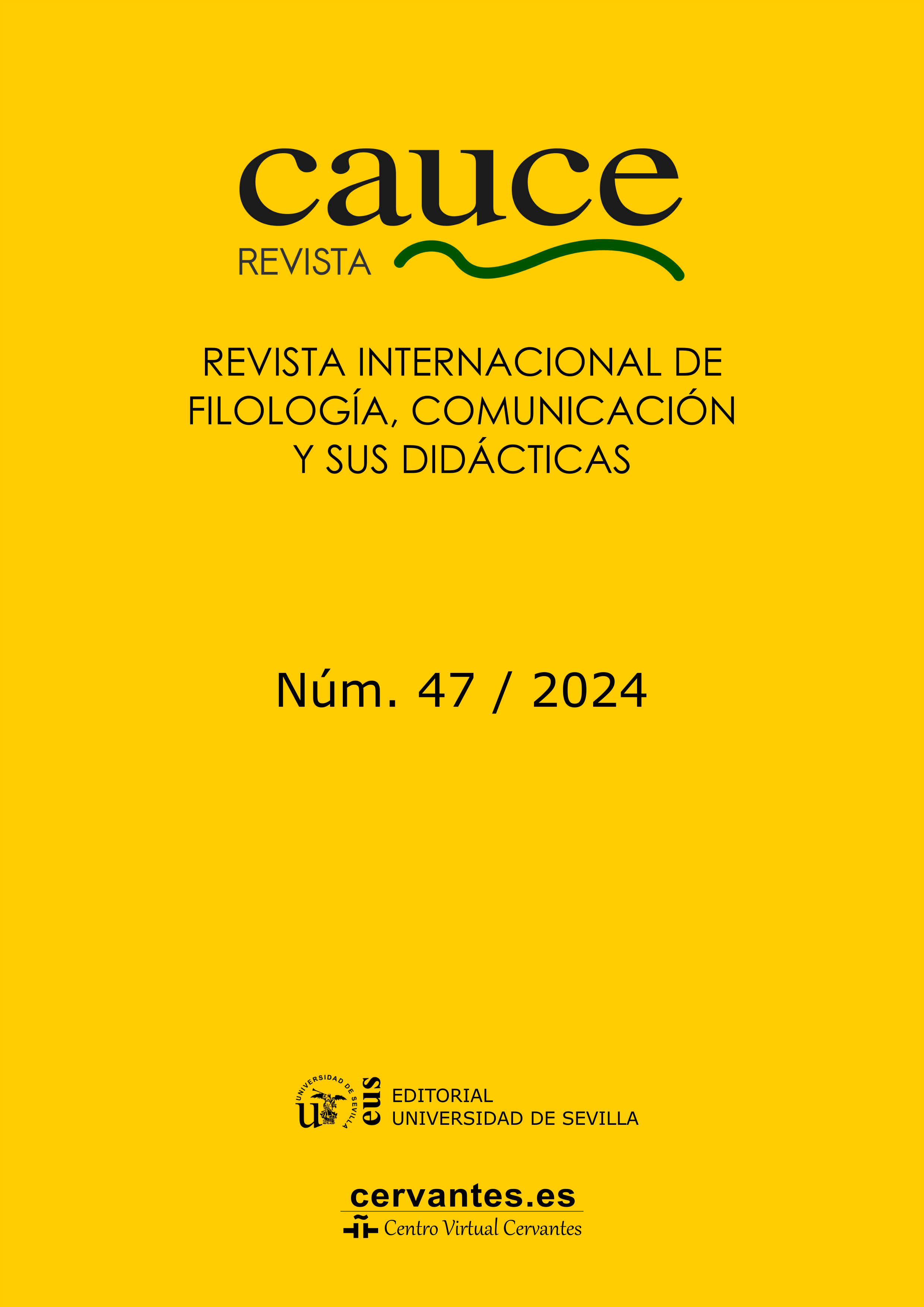Carmen Conde experienced within herself the intensity of an internal exile that coincided with her own life adventure in the years immediately following the end of the Spanish War. His poetry manifests itself in expressive intensities of undoubted originality and is characterized by its particular vehemence because it recorded vital anxieties and sensations that arose from his voluntary confinement necessary for political reasons. The exiled, persecuted and searched writer transferred feelings into her poetic words that bore fruit in a very specific stage of her poetry that was certainly her own and personal.
Leading article: Carmen Conde: words to contain a banishment
DOI:
https://doi.org/10.12795/cauce.v47i1.27318Abstract
Carmen Conde experienced within herself the intensity of an internal exile that coincided with her own life adventure in the years immediately following the end of the Spanish War. His poetry manifests itself in expressive intensities of undoubted originality and is characterized by its particular vehemence because it recorded vital anxieties and sensations that arose from his voluntary confinement necessary for political reasons. The exiled, persecuted and searched writer transferred feelings into her poetic words that bore fruit in a very specific stage of her poetry that was certainly her own and personal.
Downloads

Published
How to Cite
Issue
Section
License
Los originales publicados en la Revista Cauce se acogen a la licencia "Creative Commons Reconocimiento 4.0" (CC BY 4.0). En caso de posteriores citas o menciones por parte de los mismos u otros autores, dicha licencia obliga a la mención de los autores originales.
Puede consultar desde aquí la versión informativa y el texto legal de la licencia. Esta circunstancia ha de hacerse constar expresamente de esta forma cuando sea necesario.

